It took a long time to compile the reading list for the Literature and War Readalong 2013 but I must say, I’m pleased with the result.
In 2013 we will be reading 12 books from 12 different countries, written in 8 different languages and covering 6 different wars.
I think it’s the most diverse list so far. I also tried to take different events into account which should allow people to pick a book for the readalong which will also count towards other events. There is an Irish author for March, a Dutch author for June, German for November, and a Canadian and an Australian choice for the respective challenges.
And here goes the final list
January, Monday 28
The Yellow Birds by Kevin Powers (2012), 240 pages – US – Iraq war
LONGLISTED FOR THE GUARDIAN FIRST BOOK AWARD 2012 NEW YORK TIMES BESTSELLER An unforgettable depiction of the psychological impact of war, by a young Iraq veteran and poet, THE YELLOW BIRDS is already being hailed as a modern classic. Everywhere John looks, he sees Murph. He flinches when cars drive past. His fingers clasp around the rifle he hasn’t held for months. Wide-eyed strangers praise him as a hero, but he can feel himself disappearing. Back home after a year in Iraq, memories swarm around him: bodies burning in the crisp morning air. Sunlight falling through branches; bullets kicking up dust; ripples on a pond wavering like plucked strings. The promise he made, to a young man’s mother, that her son would be brought home safely. With THE YELLOW BIRDS, poet and veteran Kevin Powers has composed an unforgettable account of friendship and loss. It vividly captures the desperation and brutality of war, and its terrible after-effects. But it is also a story of love, of great courage, and of extraordinary human survival. Written with profound emotional insight, especially into the effects of a hidden war on families at home, THE YELLOW BIRDS is one of the most haunting, true and powerful novels of our time. ‘THE YELLOW BIRDS is the All Quiet on the Western Front of America’s Arab Wars.’ (Tom Wolfe, author of The Bonfire of the Vanities ) ‘Kevin Powers has conjured a poetic and devastating account of war’s effect on the individual.’ (Damian Lewis, star of Homeland and Band of Brothers ) ‘Inexplicably beautiful’. (Ann Patchett, Orange Prize-winning author of Bel Canto and State of Wonder)
February, Thursday 28
The Flowers of War aka Jingling Shisan Chai by Geling Yan (2006), 256 pages, China – Chinese/Japanese war
December 1937. The Japanese have taken Nanking. A group of terrified schoolgirls hides in the compound of an American church. Among them is Shujuan, through whose thirteen-year-old eyes we witness the shocking events that follow. Run by Father Engelmann, an American priest who has been in China for many years, the church is supposedly neutral ground in the war between China and Japan. But it becomes clear the Japanese are not obeying international rules of engagement. As they pour through the streets of Nanking, raping and pillaging the civilian population, the girls are in increasing danger. And their safety is further compromised when prostitutes from the nearby brothel climb over the wall into the compound seeking refuge. Short, powerful, vivid, this beautiful novel transports the reader to 1930s China. Full of wonderful characters, from the austere priest to the irreverent prostitutes, it is a story about how war upsets all prejudices and how love can flourish amidst death.
March, Thursday 28
The Heat of the Day by Elizabeth Bowen (1949), 336 pages, Ireland – WWII
It is wartime London, and the carelessness of people with no future flows through the evening air. Stella discovers that her lover Robert is suspected of selling information to the enemy. Harrison, the British intelligence agent on his trail, wants to bargain, the price for his silence being Stella herself. Caught between two men and unsure who she can trust, the flimsy structures of Stella’s life begin to crumble.
April, Monday 29
The Wars by Timothy Findley (1977), 240 pages, Canada – WWI
Robert Ross, a sensitive nineteen-year-old Canadian officer, went to war – the War to End All Wars. He found himself in the nightmare world of trench warfare; of mud and smoke, of chlorine gas and rotting corpses. In this world gone mad, Robert Ross performed a last desperate act to declare his commitment to life in the midst of death.The Wars is quite simply one of the best novels ever written about the First World War.
May, Friday 31
All That I Am by Anna Funder (2011), 384 pages, Australia – WWII
Anna Funder, winner of the Samuel Johnson Prize and author of Stasiland, offers a thrilling tale and powerful love story that tells the heroic and tragic true story of the German resistance in World War II in All That I Am.
When Hitler comes to power in 1933, a tight-knit group of friends and lovers become hunted outlaws overnight. United in their resistance to the madness and tyranny of Nazism, they must flee the country. Dora, passionate and fearless, her lover, the great playwright Ernst Toller, her younger cousin Ruth and Ruth’s husband Hans find refuge in London. Here they take breath-taking risks in order to continue their work in secret. But England is not the safe-haven they think it to be, and a single, chilling act of betrayal will tear them apart…’The strengths of Funder’s writing are emotional and imaginative. In what she has to say about love, loss and betrayal there is profound truth’ The Times
June, Friday 28
Winter in Wartime akak Oorlogswinter by Jan Terlouw (1972), 220 pages, Netherlands – WWII
Near the end of World War II, 14-year-old Michiel becomes involved with the Resistance after coming to the aid of a wounded British soldier. With the conflict coming to an end, Michiel comes of age and learns of the stark difference between adventure fantasy and the ugly realities of war.
July, Monday 29
Children of the New World aka Les enfants du nouevau monde by Assia Djebar (1962), 233 Algeria – French/Algerian war
Assia Djebar, the most distinguished woman writer to emerge from the Arab world – and a top candidate for the Nobel Prize in Literature – wrote “Children of the New World” following her own involvement in the Algerian resistance to colonial French rule. Djebar’s novel sheds light on current world conflicts as it reveals a determined Arab insurgency against foreign occupation, from the inside out. However, Djebar focuses on the experiences of women drawn into the politics of resistance. Her novel recounts the interlocking lives of women in a rural Algerian town who find themselves joined in solidarity and empower each other to engage in the fight for independence. Narrating the resistance movement from a variety of perspectives – from those of traditional wives to liberated students to political organisers – Djebar powerfully depicts the circumstances that drive oppressed communities to violence and at the same time movingly reveals the tragic costs of war.
August, Friday 30
Grey Souls aka Les âmes grises by Philippe Claudel (2003), 208 pages, France – WWI
This is ostensibly a detective story, about a crime that is committed in 1917, and solved 20 years later. The location is a small town in Northern France. The war is still being fought in the trenches, within sight and sound of the town, but the men of the town have been spared the slaughter because they are needed in the local factory. One freezing cold morning in the dead of winter, a beautiful ten-year old girl, one of three daughters of the local innkeeper, is found strangled and dumped in the canal. Suspicion falls on two deserters who are picked up near the town. Their interrogation and sentencing is brutal and swift. Twenty years later, the narrator, a local policeman, puts together what actually happened. On the night the deserters were arrested and interrogated, he was sitting by the bedside of his dying wife. He believes that justice was not done and wants to set the record straight. But the death of the child was not the only crime committed in the town during those weeks.
September, Monday 30
There’s No Home by Alexander Baron (1950), 288 pages, UK – WWII
‘An unqualified masterpiece … as acute a study of the psychology of war as fiction offers us’ Guardian It’s 1943. The allied invasion of Sicily. In a lull in the fighting, an exhausted British battalion marches into the searing summer heat of Catania, to be greeted by the women, children and old men emerging from the bomb shelters. Yearning for some semblance of domestic life, the men begin to fill the roles left by absent husbands and fathers. Unlikely relationships form, tender, exploitative even cruel, but all shaped by the exigencies of war. Centred around a love story, between Graziela, a young mother, and Sergeant Craddock, whose rough attempts at seduction are vindicated by his sympathy and the care he shows for her malnourished child, There’s No Home offers an unerringly humane and authentic portrayal of the emotional impact of war.
Ivan Grigoryevich has been in the Gulag for thirty years. Released after Stalin’s death, he finds that the years of terror have imposed a collective moral slavery. He must struggle to find a place for himself in an unfamiliar world. Grossman tells the stories of those people entwined with Ivan’s fate: his cousin Nikolay, a scientist who never let his conscience interfere with his career, Pinegin, the informer who had Ivan sent to the camps and Anna Sergeyevna, Ivan’s lover, who tells of her involvement as an activist in the Terror famine of 1932-3.
Everything Flows is Vasily Grossman’s final testament, written after the Soviet authorities suppressed Life and Fate.
November, Friday 29
Death of the Adversary aka Der Tod des Widersachers by Hans Keilson (1942), 224 pages, Germany – WWII
My enemy – I shall refer to him as B. – entered my life about twenty years ago. At that time I had only a very vague idea of what it meant to be someone’s enemy; still less did I realise what it was to have an enemy. One has to mature gradually towards one’s enemy as towards one’s best friend.
1930s Germany; the shadow of Nazism looms. Pictures of the new dictator, ‘B.’, fill magazines and newspapers. Our hero is ten when his world begins to change dramatically. Suddenly, the other children won’t let him join in their games. Later, he is refused a job on a shop-floor. Later still, he hears youths boasting of an attack on a Jewish cemetery. Both hypnotised and horrified by his enemy, our hero chronicles the fear, anger and defiance of everyday life under tyranny.
Written while Hans Keilson was in hiding during World War II, this novel is a powerful account of what he outlived. Painful, trenchant and streaked with dark humour The Death of the Adversary is a rediscovered masterpiece.
December, Monday 30
The Sorrow of War aka Thân phận của tình yêu by Bao Ninh (1991) 240 pages, Vietnam – Vietnam war
Kien’s job is to search the Jungle of Screaming Souls for corpses. He knows the area well – this was where, in the dry season of 1969, his battalion was obliterated by American napalm and helicopter gunfire. Kien was one of only ten survivors. This book is his attempt to understand the eleven years of his life he gave to a senseless war.
Based on true experiences of Bao Ninh and banned by the communist party, this novel is revered as the ‘All Quiet on the Western Front for our era’.
Kevin suggested this book and I think after having read a few US novels on the war in Vietnam it’s about time to read one written by a Vietnamese writer.
The rules are still the same. At the beginning of the month, I will post a quick introduction to the book and who likes, can readalong, and either just join the discussion or post a review on his/her blog as well. I will, as usual link to all the reviews.







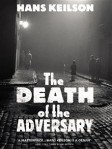

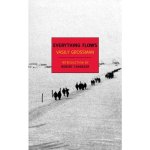

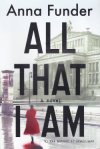
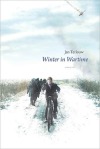
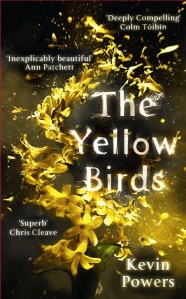
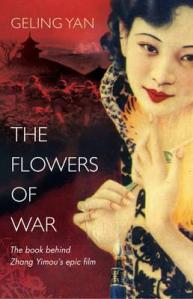
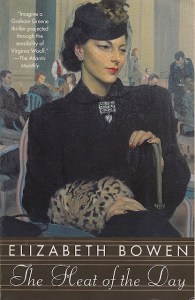
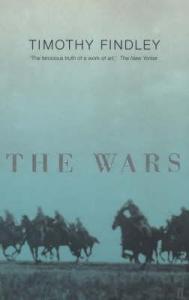
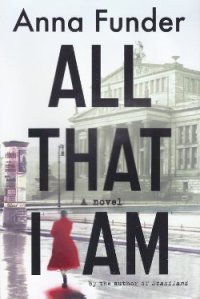
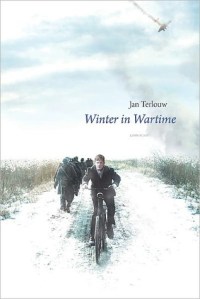
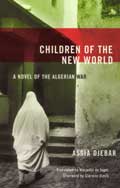
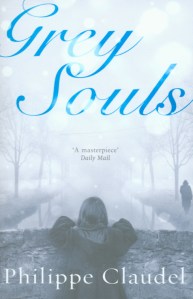


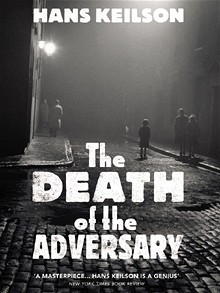
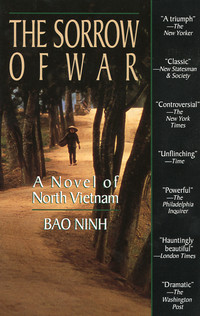
It’s an impressive list Caroline. I’ve just come across Timothy Findley’s The Wars on Good Reads so that one is already on my ‘to read’ list.
They made a film of Winter in Wartime didn’t they. I hadn’t realised there was a book which I do still want to read despite knowing the story.
Thanks, Caroline, I hpe will join for a few titles. Findley should be very good.
I’ve seen the movie Winter in Wartime. It was OK but I’ve heard a few times that the book was far better, I thought it’s a good choice.
What a great list and I’m happy to see the diversity–other wars and books by women or from the female perspective. I’m looking forward to Yellow Birds as I have heard good things about it. I’ve only got a few of these already (the Bowen, and Findley) on hand a few on my wishlist already (the Funder, and Claudel) and a number of them are completely new to me–so it will be a fun list to read from. Thanks, Caroline–looking forward to this!
Thanks, Danielle, I’m glad you like it. i chnages it many times until I thought, this is it. It’s got a bit of everything and many I’m really keen on reading. It’s still heavy on WWII but given its enormity it’s logical that there are many good books focussing on it. There are two novels with a crime theme, the Bowen and Cludel, that should be great as well. And the combat perspective is there too with the Yellow Birds and the Vietnamese book.
I’m glad you will join again.
Very strong list. I’m interested, and will try to join.
I just tried The Yellow Birds last week, and gave up after 10 pages. But I know I was in the wrong mood and wasn’t fair to the book. The Funder is supposed to be very ambitious, and Claudel has always interested me.
Life & Fate was a highlight for me last year, and I read my first Keilson and loved it earlier – I have Death of the Adversary.
Thanks, Leroy. I really put a lot into this list, I wanted it to be different from the last years which wasn’t easy. And diversity was key. I saw The Yellow Birds compared to Tim O’Brien a few times, so you might really have been in the wrong mood. I wanted to read it since I first saw it mentioned. I have a few of Claudel’s books and am very keen on finding out how good he is.
It would be great if you wuld join for a few of the titles.
I’ve heard so many good things about Grossman, it’s about time, i tried him myself.
Looks to be a great list. In particular I have heard that Vasily Grossman was a great writer. I will try to join you for a book or two during the year.
That would be great Brian. the list is diverse in terms of angles and styles too, I’m sure you’ll find the one or the other that would apeal to you. Grossman and Keilson but also The Yellow Birds.
After Ledig, I thought no more war. Then you come up with this list …. count me in for March, May, June, August, October and – er – November.
🙂 This is wonderful. I’m very glad I found books you’d like to read as well.
What a fantastic list! I wasn’t going to join any challenges for 2013, but this read-along may just break my resolution!
I’m glad you like it Debbie and, of course, it would be great if you would join. It’s not really a challenge as such, there is no obligation to read all the titles, youcan just pick thos which appeal the most.
Wonderful list, Caroline! It is wonderful to see many women writers in your selection. 2013 promises to be a wonderful ‘Literature and War readalong’ year. I will come back and write a longer comment tomorrow.
Thanks, Vishy. I think it’s an interesting list, maybe you will join for a book or two. 🙂
This is an amazing and diverse list about war. I’m can’t stick to any reading plan but I hope you have a great year with these books!
Thanks, JoV. You can only read along occasionlly, even only one book is fine, but I really understand if you don’t want to stick to any plans.
What a great list! I’ll probably try to join you in reading Children of the New World, Everything Flows, and The Sorrow of War 🙂
That’s great news, Leah. I think all three will offer a lot to discuss.
Pingback: Moncler Jackets shop
What an amazing compilation, Caroline. They all sound so good. I’m curious: how did you find all of them?
Thanks, Carole. Each has its own history of discovery. I read one or two reveiws, soem were suggestions, some are by authors I know but haven’t read that particular book. The way they were found is a diveres as the choices I’d say.
I knew which countries I wanted to include, so I had a whole list of Canadian war books, Australian… and then narrowed it down. I had a Canadian WWI,so picked and Australian WWII. 🙂
I’m in (of course), but skeptical (of course). It looks like my horizons are going to be broadened again. I’m too old for this, but lead on. I am looking forward to The Yellow Birds, The Wars, Winter in Wartime, Every Souls, and The Sorrow of War.
The Flowers of War is in my queue on Netflix Instant Play. I guess I will be doing a book/movie review on that one. Also on Winter in Wartime( if I can ever get a hold of the movie!)
I have a feeling I will have a hard time getting some of the titles without purchasing them.
I promise to give the chick books a fair evaluation.
There will be some broadening of horizons fr all of us this year.
I would hve thought that Children of the New World would be the only one which m ight be difficult. The others should be available.
Actually, two of the books were suggestions you made end of 2011. One is the book by Elizabeth Bowen, The Heat fo the Day, the other was Sorrow of War.
I thought you’ve seen Winter in Wartime? I reviewed it a while back. It’s okish. I’m afaird the first and the last might tunr out to be your favorites and you’d find the Grossman very interesting. We will see.
Great List, several of them interest me, especially the one about the war in Algeria.
I see they’re all short books. I have to check whether the foreign ones are available in French.
I have read Les âmes grises and didn’t understand why it is so praised. I was probably in the wrong mood.
Thanks, Emma. I had to buy the Djebar in English. I wanted to read it since years but couldn’t find a French copy. It annoys me but I’m too keen on reading it.I’m curious to see how I will like Les âmes grises. I thought it might be a book that will divide us. I hope it was only your mood. 🙂
Yes, this is a very classy list. I’ve never joined in before as war literature isn’t really my thing. And having said that there are three books here I’d be interested in reading – the Elizabeth Bowen, the Phillippe Claudel and the Anna Funder. I’m a fan of Assia Djebar too so will be very curious to see what your readers make of that one.
Thanks, Litlove, I think te lits is different for the last years. No Holocaust, Hirohima and very little combat. I had to give myself a break as well. I wanted to raise the bar higher in terms of writing and diversity. Being Europeans we tend to forget how many wars there have been and still are, that was another aim.
It would be great if you would join for the one or the other.
Great list Caroline. The Bowen, the Grossman and the Claudel have more appeal to me. I tried to read The Flowers of War and couldn’t get beyond a few pages.
Thansk, Guy. I was in the mood for a Chinese novel and thought it could be a great choice. Hope you were just in the wrong mood. Or was it very gruesome? The naking massacre isn’t exactly a cheerful topic.
I didn’t get that far into it and in just a few pages it hit me all wrong. I have so much to read, and when I’m turned off, it’s hard to persuade myself to try again.
BTW I have Heat of the Day here and bought the Claudel, so I’ll try to join in too. Thanks as always for your incredible effort.
That’s wonderful, Guy. I’m sure we will all like the Bowen and for The Flowers of WAr, I guess we will have to find out.
what a list!! You cover more languages now.
Can I just watch The Flower of War and review it 😉
Since I have never heard any of those books/authors and small chance of finding it here…I will just wait for your review.
Thansk, Novia. I wanted it to be very diverse. Yes, you could do a review of the movie instead. Winter in wartime is also a movie which I could imagine you would like. You can do it, it’s fine by me. Kevi wants to do it as well.
Horay…I will do that then 🙂
I have been meaning to watch it since I saw the trailer…now I will wait till the month comes
Ok, that’s great. It’s till possible to discuss the story whether you watch the movie or read the book.
Omaygad. The list is SOLID. I don’t own anything. But I’m interested in the last book as it’s the only one set in Southeast Asia.
Thanks, Rise. I would have thought you’ve read the Grossman. I think Sorrow of War should be very interesting. I’ve only read books form the American perspective. I suppose it will not be easy to raed as it’s an autobiographical novel.
For the date given for each book, is that when you make your post? Is sometime around that date ok?
Yes, sure, that’s for me and those who have no blogs and want to discuss only. You do it as you like. If you are earlier, I’ll already be able to add the link when my post goes up.
ok, thanks
Pingback: Sunday Caught My Interest « Reflections from the Hinterland
I’ve read ‘The Yellow Birds’ (a review will appear sometime in December), ‘The Wars’ by Timothy Findley, and ‘Death of the Adversary’ by Keilson. Of the threee, ‘The Wars’ is my favorite.
I have high hopes for The Wars. I tend to prefer WWI novels. Not sure why, I just do. I’m looking forward to read what you thought of The Yellow Birds.
What a fantastic list! I hope to join in more often than I did in 2012. Thanks for hosting this for another year!
Thansk, Anna, I’m so glad you like it. It would be great if you could join for the one or the other.
Wonderful list, Caroline. I have read The Yellow Birds, it left a lasting impression. I hope to join in on some other discussions.
Thanks, Gavin. I’m glad you liked it. I’m sure I will too.
It would be great if you could join, I’m sure there are some titles you will like.
count me in for grey souls and sorrows of war as have read and still got them both ,all the best stu
That’s great, Stu, glad to have you join.
Wonderful list. I haven’t read any one of these but most, in fact, all of them are interesting. I’ll try to join in for one or two. Hopefully, more.
That’s great, Claire. It would be wonderful if you can join for some of them.
These look like wonderful books to discuss. I’m in.
They should be, yes. Thanks for joining, that’s great.
Fantastic reading list. I look forward to joining in with several of the titles.
That’s great.
I’m looking forward to the discussions.
I’ll join you for the Flowers of War in Feb. My book is coming in from the Library.
That’s such geat news, JoV. I’m really looking frward to discuss it with you and the others who may join.
Pingback: 2013 Reading Challenges « Diary of an Eccentric
Pingback: New Year’s Wishes and Favorite Books from 2012 | Page247
A great list, as noted. I’m new to the blog but am making a resolution to read all of the books (much more fun than weight loss or budgeting!). I’m delighted to find this challenge because I often feel I’m alone in my literary tastes and here I find a group of like-minded folks. 2013 will be a wonderful year!
Thanks, Eileen, and welcome. It’s great to know that you want to join. I think we are in for a lot of treats this year and I’m already looking forward to the first discussion.
I’ll try to join you for at least the Grossman, Caroline, and maybe the Djebar or the Claudel as well. Congrats on the increasing popularity of the event!
Thanks, Richard.
It would be great if you could join for any of the three books.
Dear Caroline
Here’s my sign-up post:
http://inkquilletc.blogspot.in/2013/01/reading-event-literature-and-war.html
I am keen to read at least a couple of the selected books.
Thanks, Neer, that’s great. I’ll add it to the post.
Pingback: Kevin Powers: The Yellow Birds (2012) Literature and War Readalong January 2013 « Beauty is a Sleeping Cat
Pingback: Geling Yan: The Flowers of War – Jingling Shisan Chai (2006) Literature and War Readalong February 2013 | Beauty is a Sleeping Cat
Pingback: Elizabeth Bowen: The Heat of the Day (1948) Literature and War Readalong March 2013 | Beauty is a Sleeping Cat
Pingback: Timothy Findley: The Wars (1977) Literature and War Readalong April 2013 | Beauty is a Sleeping Cat
Pingback: Anna Funder: All That I Am (2011) Literature and War Readalong May 2013 | Beauty is a Sleeping Cat
Pingback: Jan Terlouw: Winter in Wartime – Oorlogswinter (1972) Literature and War Readalong June 2013 | Beauty is a Sleeping Cat
Pingback: Assia Djebar: Children of the New World – Les enfants du nouveau monde (1977) Literature and War Readalong July 2013 | Beauty is a Sleeping Cat
Pingback: Philippe Claudel: Grey Souls – Les Âmes grises (2003) Literature and War Readalong August 2013 | Beauty is a Sleeping Cat
Pingback: Alexander Baron: There’s No Home (1950) Literature and War Readalong September 2013 | Beauty is a Sleeping Cat
Pingback: Vasily Grossman: Everything Flows (1961) Literature and War Readalong October 2013 | Beauty is a Sleeping Cat
Pingback: Hans Keilson: The Death of the Adversary – Der Tod des Widersachers (1959) Literature and War Readalong November 2013 | Beauty is a Sleeping Cat
Pingback: Bao Nin: The Sorrow of War aka Thân phận của tình yêu (1991) Literature and War Readalong December 2013 | Beauty is a Sleeping Cat
Pingback: 2013 Reading Challenge Update | Diary of an Eccentric